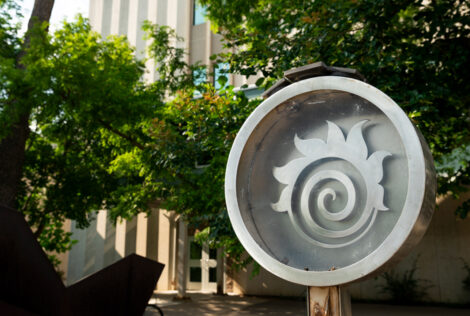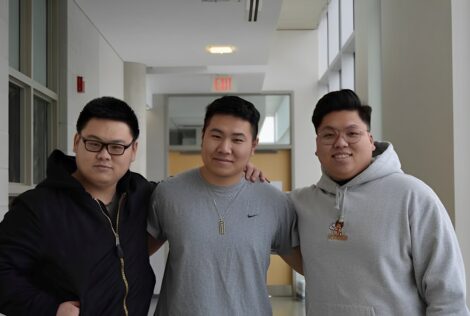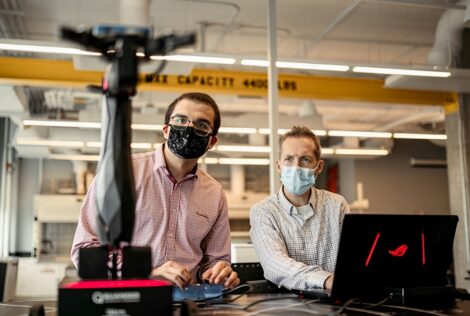

This fall, students entering their first year of McMaster’s engineering program will experience a one-of-a-kind course designed to offer industry-relevant, project-based learning.
The new Integrated Cornerstone Design Projects in Engineering is a full-year course which combines an interactive Design Studio, labs and lectures delivered virtually.
The Design Studio is an opportunity for students to meet regularly with their team as they work on a design project, from idea to prototype. Students will work on five major design projects, with topics ranging from healthcare, renewable technology and autonomous vehicle design.
Using Microsoft Teams, virtual break-out rooms will be set up where teams can collaborate and connect in real-time to assigned Faculty Mentors, Teaching Assistants (TAs) and Instructional Assistants (IAs) for guidance and support.
“This allows us to recreate the same type of experience that students would have if they were collaborating in a physical space, with close access to the expertise of the course instructional team,” says Colin McDonald, director of Engineering 1 and associate director of the Integrated Biomedical Engineering & Health Sciences (iBioMed) program.
“Students will still learn and apply 3D design skills in CAD and will be able to send their designs to the instructional team for fabrication and evaluation at McMaster.”
Specialized equipment such as robotic arms and terrestrial drones will also be virtualized for students to control realistic 3D renderings right from home.
In addition to online lectures, labs facilitated by IAs and TAs will guide students through the application of course content in a virtual setting. Access to the software required for these lab exercises will be made available to students.
“We are working closely with Quanser to offer our students the latest in transformational and innovative engineering labs,” says Ishwar K. Puri, Dean of Engineering. “This virtual environment is created using the most powerful 3D creation platforms available that introduce realistic problems to students.”
“Together, we have developed powerful techniques to bring the kind of experience that McMaster is known for, directly into students’ homes, and prepare them for a seamless transition back to campus when it is safe to do so,” says Paul Gilbert, CEO of Quanser. “We are delighted to work with the McMaster Engineering faculty – they are a forward-looking team with tremendous vision.”
Project showcases will occur in a virtual format at various points throughout the year, including live presentations and pre-recorded videos. By the end of the year, students will have created an online portfolio to showcase their work to potential employers.This curriculum transformation is part of The Pivot, a reimagined approach to teaching, learning and research in the undergraduate engineering experience at McMaster University. Fall 2020 will be the first semester that students are immersed in this new way of learning


